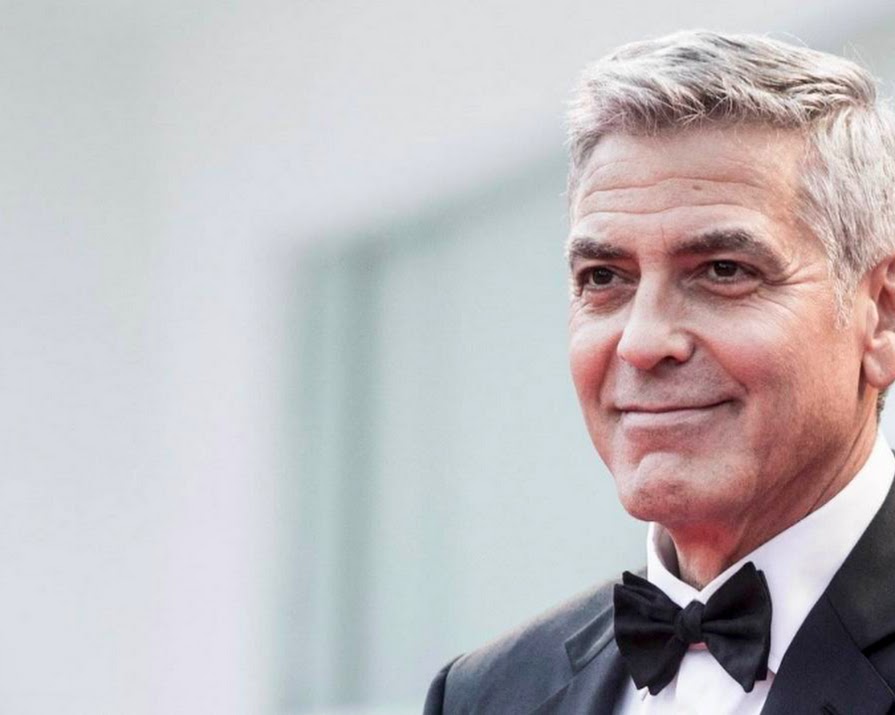
By Amanda Cassidy
06th Apr 2019
06th Apr 2019
Should we question the motives of celebrities who hire expensive PR experts to “sell” their convictions? Amanda Cassidy examines who really benefits from the glamourisation of social causes.
There is no doubt that George Clooney is passionate about his causes. His latest is a call to arms to his fellow Hollywood celebrities to boycott Brunei-owned luxury hotels in protest over the country’s anti-LGBT laws. Brunei, the country north of Malaysia has enacted a new law that dictates those caught engaging in gay sex or adultery be stoned to death. It came into effect in the last few days.
The hotels owned by the government-run Brunei Investment Agency Clooney listed include the Beverly Hills Hotel in Beverly Hills, the Hotel Bel-Air in Los Angeles, The Dorchester in London, 45 Park Lane in London, Coworth Park in Ascot, Le Meurice in Paris, Hotel Plaza Athenee in Paris, Hotel Eden in Rome, and the Hotel Principe di Savoia in Milan.
Reactive
But Clooney’s involvement has been challenged by some who have branded the boycott “virtue signalling” and “Chickens**t tokenism.” Talk show host, Bill Maher asked why Clooney wasn’t concerned about larger offences by foreign governments. “What about Saudi Arabia?” Maher asked during his HBO show, RealTime. “If you really want to get back at them, stop driving or using oil.” Guest on the show S.E. Cupp also hit out at the actor calling him “hypocritical” and pointed out that if you wanted to take a stand against aspects of Sharia Law, then Americans should stop doing any kind of business with places like Dubai in the UAE. “It’s Sharia Law, which is some version of the law in most Muslim-majority countries. And if you want to be against that, you know, speak openly and honestly about standing up for liberal principles.”
Clooney also acknowledged that boycotts like his also end up hurting the workers in these hotels. “To equate their situation with the fact that this week the 5th richest country in the world would take a young woman who is found to be gay, bury her up to her neck and have 25 men throw stones at her head until she dead seems unfathomable. This exact argument was used during the Montgomery Bus Boycott in 1955. And yes a lot of hard-working, presumably innocent bus drivers were hurt … but no one would argue that the boycott was for the far greater good.” Clooney wrote in an emotional Op-Ed that if “Brunei isn’t met with loud, forceful resistance that shakes their business establishments, then anything is possible.”
Misguided?
Taking a stand on something is now common among those in the spotlight – using their platforms to raise issues, ordinary folk may never acknowledge. Bob Geldof and Band Aid raised over €40 million for victims of the Ethiopian famine. Now, more celebrity activists than ever are demanding changes in policy towards their chosen cause célèbre. But what are the consequences and is their passion misguided?
Cynics point out that personal celebrity causes offer another outlet for self-promotion – talk shows, impassioned speeches, international forums. All tools to polish their own personal brands. Of course, fame and glamour also happen to bring very serious issues to larger audiences and even encourage pledges from policymakers, the problem is that they are much less credible and less effective at changing all this into tangible policies. The fascination for celebrities raises the risk that there will be more superficiality and less substance in our political process.
However, my own inner cynic wonders if this is already the case in a country where the President himself is a former celebrity TV star.
But it is all too easy to simply uncover shocking injustices and call for a boycott. It is a scrape-the-surface, add-water-and-stir, knee-jerk method of activism that often doesn’t work.
Writer, Alex de Waal pointed this out in an article for the World Peace Foundation. “There are fundamental pillars of activism which need to be followed. Mostly responding to and collaborating with local people, rather than imposing outside agendas.”
Martyr complex
Alex is referring to a cause that was championed by celebrities like Ben Affleck and Nicole Richie. It was about the use of conflict minerals and how to prevent sexual violence in the Democratic Republic of the Congo. A ruling supported by the Enough Project (Clooney’s personal pet project) saw international boycotts on minerals from the country and a government ban on artisanal mining. It resulted in tens of thousands of miners unable to make a living. It pushed many of those workers into the illicit mining industry or rebel groups.
Simplifying the facts, in this case, lead to a devastating effect on the lives of many and actually exacerbated the very violence the cause set out to remove.
Undoubtedly, celebrities love the spotlight. But is being ordained a martyr to a cause part of that appeal? Raising awareness is always welcomed in our higgledy-piggledy world where things like stoning to death should never be tolerated. But the danger is that the complexity of the problems is above the heads of those outside of the political sphere or that the lay-action activated is a flawed course of action in order to bring about purposeful and lasting change.
Edmund Burke once wrote that “The only thing necessary for the triumph of evil is for good men to do nothing.” Doing nothing is never the right thing. But just because your heart is in the right place and the injustices are so harrowing, doesn’t mean that doing anything at all is the right answer either.
And then there is the voice in our heads that wonders why any light being shone on such problems could be considered a bad thing. We are talking about it, we are writing about it, we are being educated and informed and shocked. It may not be the most traditional way of changing policy, but it is a start. If celebrities want to beat their chests about something close to their heart then perhaps their own personal echo chamber will eventually pull the crowds and shame our lawmakers into taking a stand. We live in a world where celebrity influence has never been more effective. Perhaps it is the only way we can now change the previously unchangeable.























